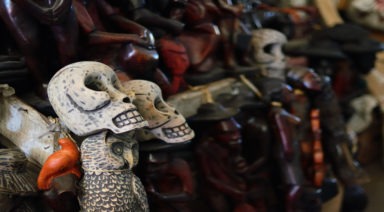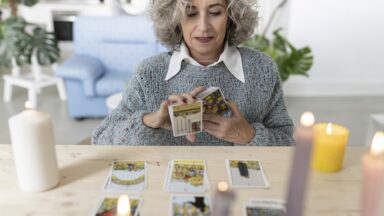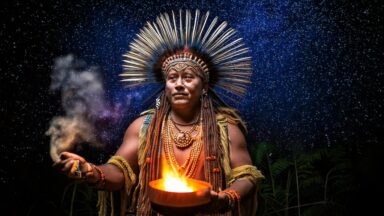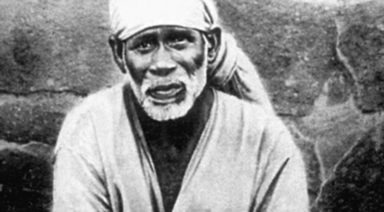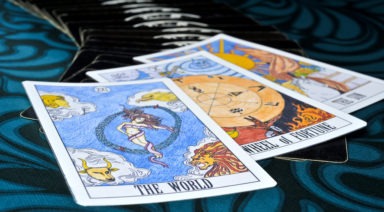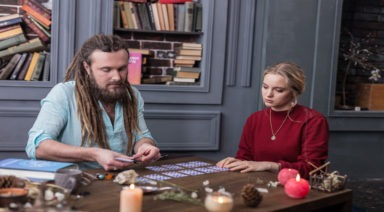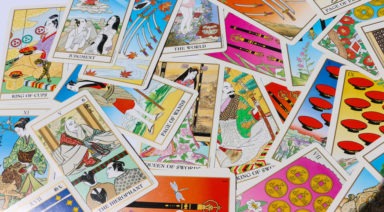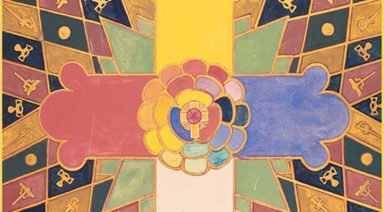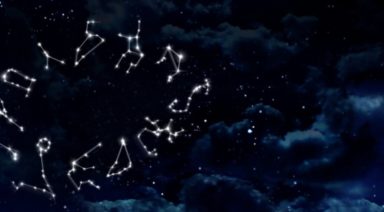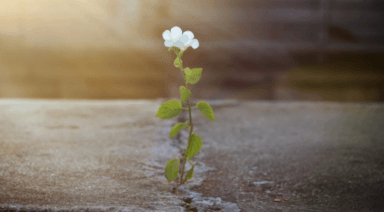Number of People Practicing Wicca, Paganism Growing Dramatically
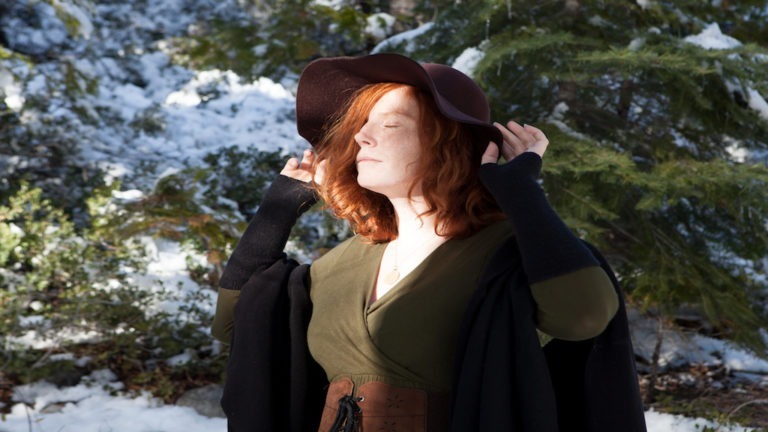
The number of people who identify religiously as Wiccan has seen a meteoric rise in the United States, according to census data and a study conducted by Trinity College. Some attribute this witchy surge to an increased interest in astrology and the esoteric, while others say it’s clearly a sign of the times. Whatever the case may be, appropriation and corporate attempts to monetize the trend abound.
According to a study collected by Trinity College between 1990 and 2008, identification with Wicca in the U.S. increased from 8,000 to 340,000 members over the 18-year period.
And that trend continues today, with a 2014 Pew Research Study finding the number of people who identified as Wiccan or Pagan jumped to close to a million people. And yes, there is a difference between Wicca and Paganism, but for the sake of making a point about the demographic, let’s consider them together.
The reason the two have grown so significantly may be due to a breakdown of misconceptions about what these religions actually stand for, many of which have been falsely spread by the church in the past. Unlike the evil stereotypes that have historically been cast on witches and pagans, millennials understand these practices have a reverence for nature, are polytheistic, and averse to the strict dogmas of mainstream religions.
Wicca has no centralized, authoritative body and embraces a number of diverse sects, lineages, and traditions – of course, this generation finds it appealing.
If you haven’t heard recent claims of pop-stars practicing Wicca, or stories of hexes placed on political figures, then this sudden spike in witchcraft may come as a surprise. But for those aware, the recent occult fascination makes sense. In fact, the rise in the number of witchcraft practitioners may have outpaced certain Christian denominations, including Presbyterianism, according to some sources.
But these situations have always presented themselves as a clarion call to corporations looking to profit from a newfound lifestyle interest, leading to cultural or religious appropriation seen in tone deaf marketing and advertising.
A recent article published by Quartz, shows how the cosmetics brand Sephora, was called out for its sale of a “Starter Witch Kit,” which included essential oils and a sage stick to jumpstart the aspiring witchy neophyte. The company quickly pulled the product after true Wiccans expressed their disapproval.
And it’s not just corporations that get it wrong when it comes to esoteric spirituality. Earlier this year we interviewed a couple who run Mountain Magic Tarot in Richlands Virginia – a shop that was told it could not practice tarot readings due to a misperception that it was hostile to the town’s mostly Christian population.
It seems inevitable though, that if you’re going to practice any religion – especially one historically thought to be synonymous with evil – someone will misconstrue your philosophy. Let’s change that paradigm.
To learn more about Wicca and its philosophy check out this episode of Beyond Belief with former-rockstar-turned-witch Fiona Horne:
What is Voodoo? A Tradition of Magic and Interconnected Realms
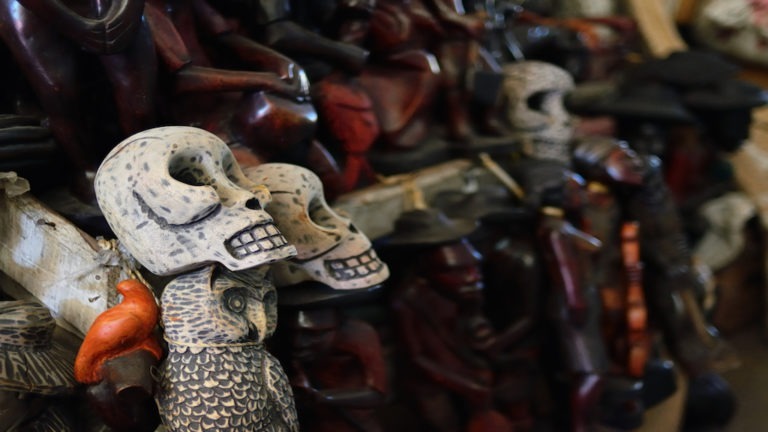
When the word “voodoo” arises, it’s usually accompanied with misconceptions, fear, and a lack of understanding. Often thought of as a violent cult, the truth couldn’t be farther from the popular cultural associations, such as voodoo dolls, witchdoctors, and violent-tinged sorcery. Voodoo, more appropriately known as vodou, is an ancient and diversely practiced religious tradition tied to Africa, the Caribbean, and the Catholic church.
But what exactly is Vodou?
Voodoo: A Rich Tradition Born From Trauma
The word Voodoo/Vodou/Vodun translates to mean “the spirit of God.” Vodou is a monotheistic religion; followers, or vodouisants, believe in one divine figurehead called Bondye, or “the good god.” Additionally, Vodou has a lesser god hierarchy, Iwa, as well as Ioa who are more engaged with the day-to-day life than Bondye, who is considered to be more remote. The Ioa/Iwa are split into three families: Rada, Petro, and Ghede. Humans and Lwa have a reciprocal relationship in which believers provide sustenance and objects in exchange for the Lwa’s protection.
Vodou combines traditions from Africa, the Caribbean, Native Americans, and Catholicism. There is evidence that as far back as 1492, many in the Taino culture were executed for their practice of Vodou during Christopher Columbus’ conquering of Hispaniola. But as the slave trade grew, so did Vodou; the newly arrived African slaves and the surviving Taino found much in common in their shared rituals and approaches to healing.
Vodou does not have a central scripture, it is community-centric and supports individualism. New Orleans is North America’s vodou epicenter, where it arrived through the slave trade from West Africa during the 18th century. Catholicism was the primary religion in the city, and what is now known as “New Orleans Vodou,” is in actuality a hybrid between the two traditions. New Orleans Vodou has become so ingrained in the city’s culture that one need only search online to see the multitude of shops, tourist attractions, and other popular destinations that keep the tradition alive.


